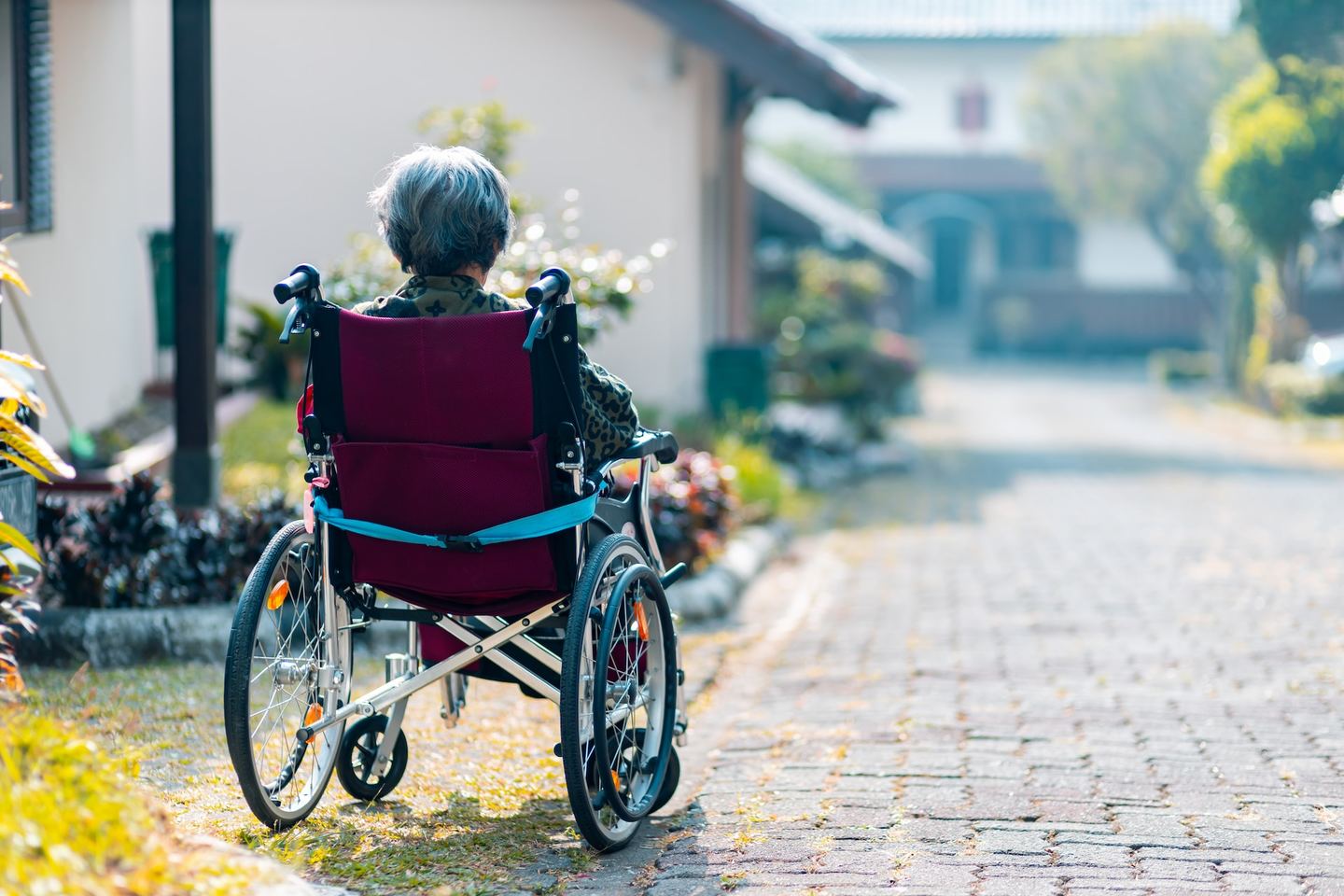When it comes to dementia care at home, there are various elements that must be addressed in order to ensure the best possible support for both individuals living with dementia and their caregivers. In this blog post, we will delve into the core components of quality dementia home care, including ensuring safety at home, accessibility to professional caregiving services, and personalized assistance tailored to individual needs.
We will also discuss the challenges faced by dementia caregivers as they navigate insufficient resources and balance personal life with caregiving duties. Furthermore, we’ll explore the importance of consistent and responsive home care systems that offer continuity of care from dedicated professionals while providing quick response times when dealing with emergencies or changing needs.
Lastly, we’ll address gaps in existing networks by evaluating current resources available for housecleaning or outdoor activities and expanding access to specialized services like occupational therapy or respite programs. By implementing comprehensive dementia care strategies at home, families can experience improved quality of life for their loved ones living with dementia while reducing stress on themselves as caregivers and lowering overall costs associated with long-term care.
Table of Contents:
- Core Components of Quality Dementia Home Care
- Challenges Faced by Family Caregivers
- The Importance of Consistent and Responsive Home Care Systems
- Addressing Gaps in Existing Networks
- Benefits of Comprehensive Dementia Home Care Strategies
- FAQs in Relation to Dementia Care at Home
- Conclusion
Core Components of Quality Dementia Home Care
Establishing a secure and welcoming space for individuals with dementia entails providing tailored support that caters to their unique needs and preferences. This involves understanding their specific requirements, interests, and abilities in order to create an atmosphere that promotes their well-being.
Accessibility to professional caregiving services is essential for ensuring that individuals with dementia receive the specialized care they need. These services can include trained and experienced caregivers who are well-versed in handling dementia-related challenges, as well as healthcare providers who can offer medical guidance and supervision. By having access to these resources, families can feel confident that their loved ones are receiving the best possible care.
A strong focus on safety is crucial when creating a comfortable environment for individuals with dementia. This involves taking preventative measures such as installing grab bars, removing tripping hazards, and securing potentially dangerous items. Additionally, implementing memory aids and clear signage can help individuals with dementia navigate their surroundings more easily and reduce their risk of injury.
Crafting and comfortable environment for individuals with dementia necessitates personalized assistance, access to professional caregiving services, and an emphasis on safety precautions. By addressing these key components, families can ensure that their loved ones thrive in a supportive and nurturing setting.
Ensuring Safety at Home
Eliminating potential hazards, installing safety features, and developing a contingency plan are essential steps to ensure a secure environment for individuals with dementia. To remove potential risks, it is important to assess the living space and identify any objects or areas that could pose a danger, such as loose rugs, cluttered walkways, or sharp edges. Installing safety features like grab bars, non-slip mats, and adequate lighting can significantly reduce the likelihood of accidents and provide additional support for those with dementia. Devising a contingency plan is also crucial in case of emergencies or unforeseen situations.
This may include having an easily accessible list of emergency contacts, creating a clear evacuation route, and regularly reviewing the plan with family members and caregivers. By taking these measures, families can create a safe and reassuring environment that fosters a sense of security and well-being for their loved ones with dementia. Alzheimer’s Association offers helpful tips.
Accessibility to Professional Caregiving Services
Find reliable professional caregiving services through Eldercare Locator to ease the burden on family caregivers and ensure proper care for those with dementia.
Personalized Assistance Tailored to Individual Needs
- Daily Activities: Offer assistance with daily activities like bathing, dressing, meal preparation, or medication management.
- Cognitive Stimulation: Engage individuals in stimulating activities like puzzles or memory games to maintain cognitive function.
- Social Interaction: Encourage social interaction through regular visits from friends or participation in community programs to combat feelings of isolation.
- Physical Exercise: Incorporate regular physical activity, such as walking or gentle stretching exercises, to improve overall health and mobility.
To help promote quality of life and aid those who are taking care of individuals with dementia, a comprehensive plan for home care should be developed which includes regular social visits from friends, involvement in community activities, physical activity like walking or light stretching exercises.

Challenges Faced by Family Caregivers
Providing dementia care at home can be a challenging yet rewarding experience for families and caregivers. By choosing to support their loved ones in a familiar environment, they help maintain a sense of comfort and stability, which is essential for individuals living with dementia.
It’s crucial to create a safe and supportive atmosphere, adapting the living space to meet the unique needs of the person with dementia. Caregivers should educate themselves about the various stages of dementia and collaborate with healthcare professionals to ensure they’re providing the best possible care.
While dementia care at home can be demanding, the love and dedication shown by families and caregivers make a significant impact on improving the quality of life for those affected by this condition.
Insufficient Professional Caregiver Resources
Numerous families managing dementia care at home often face the challenge of limited access to professional caregivers and home care service resources. This lack of support can leave them feeling overwhelmed and undertrained, as they strive to provide the best possible care for their loved ones with dementia.
Without access to specialized knowledge and expertise, these families may struggle to understand the complexities of dementia and develop effective strategies for addressing the unique needs of the affected individual. This situation can lead to increased stress and burnout, as family caregivers attempt to navigate the challenges of dementia care without adequate guidance or assistance.
Consequently, it is crucial to raise awareness about the importance of professional caregiving services and explore ways to make these resources more accessible to families in need, ultimately enhancing the quality of life for both individuals with dementia and their caregivers.
Source: Alzheimer’s Association
Balancing Personal Life and Caregiving Duties
Caring for a loved one with dementia strains personal relationships and work-life balance, impacting employment and daily routines.
Source: AARP Public Policy Institute
- Maintain regular schedules despite frequent interruptions from caregiving tasks.
- Find time for self-care amidst constant demands from others.
- Navigate difficult conversations about finances or long-term planning.
Managing Stress and Avoiding Caregiver Burnout
Consequently, the stress of providing care for a person with dementia can lead to an overwhelming sense of physical, emotional and mental exhaustion known as caregiver burnout.
Source: Mayo Clinic
- Look for help from your loved ones or join a support system.
- Prioritize self-care by setting aside time for hobbies or relaxation techniques like meditation.
- Consider respite care options to give yourself a break when needed.
Developing comprehensive strategies that improve access to professional caregiving services and support the well-being of family caregivers is essential to address these challenges.

The Importance of Consistent and Responsive Home Care Systems
A consistent and responsive home care system is crucial for quality community-based care for people living with dementia.
Dedicated professionals who provide continuity of care tailored to each individual’s unique needs and preferences build trust and improve communication.
- Rapid response: Quick action during emergencies or changes in condition is essential.
- Frequent assessments: Regular health assessments detect new concerns early on, preventing complications from escalating.
- Flexible care plans: Adaptable care plans accommodate changes in needs as dementia progresses.
By prioritizing consistency and responsiveness, caregivers can improve the quality of life for those under their care and alleviate stress for family members.
Addressing Gaps in Existing Networks
Addressing gaps in existing networks and developing comprehensive strategies are vital for improving the quality of dementia home care. By identifying areas where support and resources are lacking, stakeholders can work collaboratively to create targeted solutions that cater to the specific needs of individuals with dementia and their caregivers.
One approach to bridge these gaps is to establish partnerships between healthcare providers, community organizations, and government agencies. This collaboration can lead to a more cohesive support system, enabling the sharing of knowledge, resources, and expertise across different sectors. As a result, families can access a wider range of services and receive tailored guidance on dementia care.
Another strategy involves expanding educational and training opportunities for both professional caregivers and family members. By offering workshops, seminars, and online resources, caregivers can develop essential skills and knowledge to better manage the challenges associated with dementia care at home.
Furthermore, enhancing awareness about dementia and available support services is crucial for reaching more families in need. Public awareness campaigns, community events, and social media initiatives can help disseminate valuable information about dementia care and the resources available to assist families in their caregiving journey.
Advocating for policy changes and increased funding can contribute to the development of more robust support networks for dementia home care. By allocating resources to improve access to professional caregiver services, training, and respite care, governments can play a significant role in enhancing the overall quality of dementia care provided at home.
Developing strategies to address the gaps in existing networks is essential for enhancing dementia home care. Through collaborative efforts, improved education, increased awareness, and supportive policies, communities can work together to ensure that individuals with dementia and their caregivers receive the comprehensive support they need.
Evaluating Current Resources for Housecleaning or Outdoor Activities
Caregivers often struggle to find home care services, such as housekeeping and outdoor maintenance, so it’s essential to evaluate current services and identify potential new providers.
- Find help: Check out existing services and find new providers to assist with housekeeping and outdoor maintenance.
Expanding Access to Specialized Home Care Services
Families of those with dementia may not always have the capacity to utilize occupational therapy and respite care, two critical forms of assistance.
- Create partnerships: Collaborate with local organizations offering specialized services like occupational therapy.
- Expand respite care programs: Learn more about respite care options to reduce caregiver burnout.
- Increase funding: Advocate for increased funding to support specialized services for quality dementia home care.
By addressing gaps in existing networks and expanding access to vital resources, we can improve the overall quality of life for those living with dementia and provide better support for their caregivers at home.
Benefits of Comprehensive Dementia Care At Home Strategies
Developing comprehensive strategies for dementia care at home can improve quality of life and reduce financial burden on families.
Improved Quality of Life for People Living with Dementia
Personalized assistance, safe environment, meaningful activities, and social connections can lead to greater independence and overall well-being for people living with dementia.
Reduced Stress and Better Support for Dementia Caregivers
Comprehensive home care strategies provide relief to family caregivers who may be struggling under immense pressure, allowing them more time for self-care and other responsibilities.
Lowering Overall Costs Associated With Long-Term Care
- In-home support: Reduces the need for costly long-term residential facilities or hospital stays.
- Prompt intervention: Enables early detection and management of potential issues before they escalate into more severe problems.
- Saving on caregiver expenses: Respite programs or caregiver support groups can help family caregivers avoid burnout, which may lead to additional expenses in hiring professional assistance.
A comprehensive approach to looking after dementia sufferers in the home setting can improve both their and their caregivers’ lives, as well as cutting back on expenditure related to long-term care.
FAQs in Relation to Dementia Care at Home
Should dementia patients be cared for at home?
Caring for dementia patients at home is often preferred as it provides a familiar environment and can improve their quality of life, but it depends on the individual’s needs, home care services, and caregiver support, with home safety and accessibility to professional caregiving services being crucial factors. Here are some tips for home safety.
What helps dementia care at home?
To help individuals with dementia at home, ensure a safe living space by removing hazards and providing clear pathways, establish routines to minimize confusion, offer activities that promote cognitive function, and access professional caregiving services, personalized assistance tailored to individual needs, and family support.
What are two common issues that affect dementia caregivers?
- Family caregivers may struggle to balance work commitments or relationships while caring for their loved one.
- The emotional stress from caregiving duties can lead to exhaustion or depression if not properly managed.
When should a dementia patient go to a care facility?
A person with dementia should consider transitioning into a care facility when their needs exceed what can be provided safely in-home by caregivers or professionals, such as increased medical attention requirements or behavioral changes posing risks towards themselves or others. Consultation with healthcare professionals is advised before making this decision. Here are some options for residential care.
Embracing the Rewards and Challenges of Dementia Care at Home
Family caregivers face challenges such as insufficient resources, balancing personal life with caregiving duties, and managing stress.
Consistent and responsive home care systems are important for continuity of care from dedicated professionals and quick response times when dealing with emergencies or changing needs.
Evaluating current resources available for housecleaning or outdoor activities while expanding access to specialized services like occupational therapy or respite programs can address gaps in existing networks.
Comprehensive dementia home care strategies have benefits such as improved quality of life for people living with dementia, reduced stress and better support for family caregivers, along with lowering overall costs associated with long-term care.





